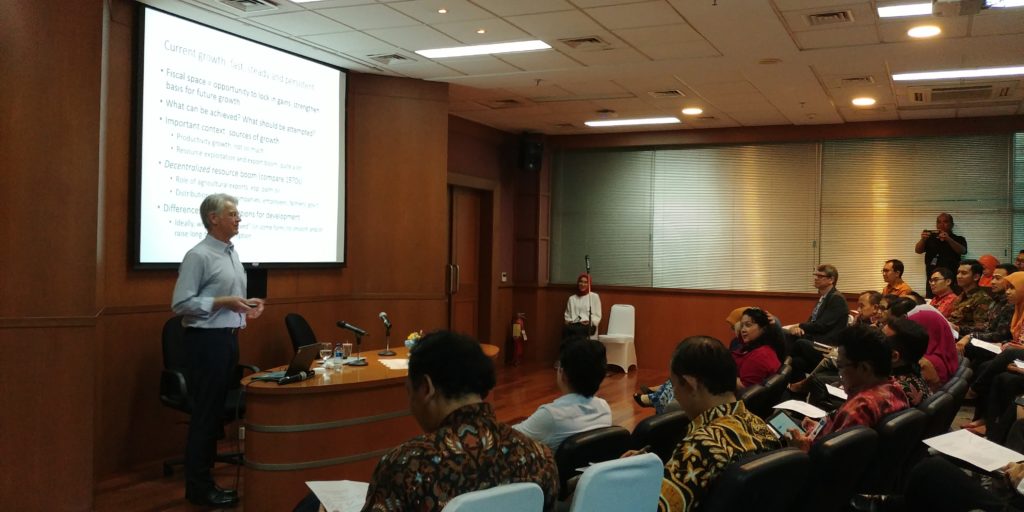Bank of Indonesia Institute hosted FKP seminar on 9 February 2018 where Ian Coxhead, a professor and chair of the Department of Agricultural and Applied Economics at University of Wisconsin-Madison, presented his joint research with Rashesh Shrestha (ERIA) entitled “Repair the roof while the sun is shining: Preserving and sustaining gains from recent economic growth”.
Indonesia has been enjoying a fast, steady, and persistent growth from oil palm boom compared to earlier booms. The question that lingers is that whether or not the surging oil palm price has improved household welfare in Indonesia, and, considering that the boom would not last long in the future, what should be attempted to “repair the roof”, or policy improvements during the boom.
Apparently, the boom’s effect on household seem small as confirmed in many other studies. This is partly due to the decentralization mechanism that was adopted in the years after the fall of New Order regime. Compared to the oil and mining boom in 1970s, where the financial gain went straight to the central government and distributed to the people solely by the government, the ‘windfall’ profits from oil palm boom are shared between government, households, and corporations, meaning less money transferred to the government. This leaves the people struggling to climb the ladder of poverty largely by themselves. It was also shown that there was no change in the number of the poor in the oil palm sector relative to non-oil palm sector, despite the huge money coming in to the sector and massive employment created by oil palm-related production.
Not addressing current condition would trigger many problems by the time the boom is over as Indonesia still has not been equipped by skillful labor just yet. ‘Dutch disease’, or a phenomenon where natural resource-dependent growth leads to sluggish improvement in other sectors, is still an issue in Indonesia. Opportunity cost of schooling may have risen in oil palm producer districts, thus, less incentive to invest in education. Lack of skill diversification across generations may also be impeding labor mobility; those who enter the agricultural labor force seldom leave. On the other hand, manufacturing sector has been experiencing a stagnant growth, while at the same time, wages in expanding sectors, most of them are informal, are flat. Coxhead suggested that the 5% growth claimed by Indonesia has not yet been translated to real wages.
Low investment in human capital is not the only hurdles for sustaining gains from the growth. The allocation of ‘windfall’ earnings to savings or other financial assets are still very low due to the limited access to financial intermediaries, especially in rural areas. This also can be seen in the rate of savings growth in oil palm provinces, which are lower than the national average.
For the complete presentation and Q&A session, please refer to the videos and materials provided.






